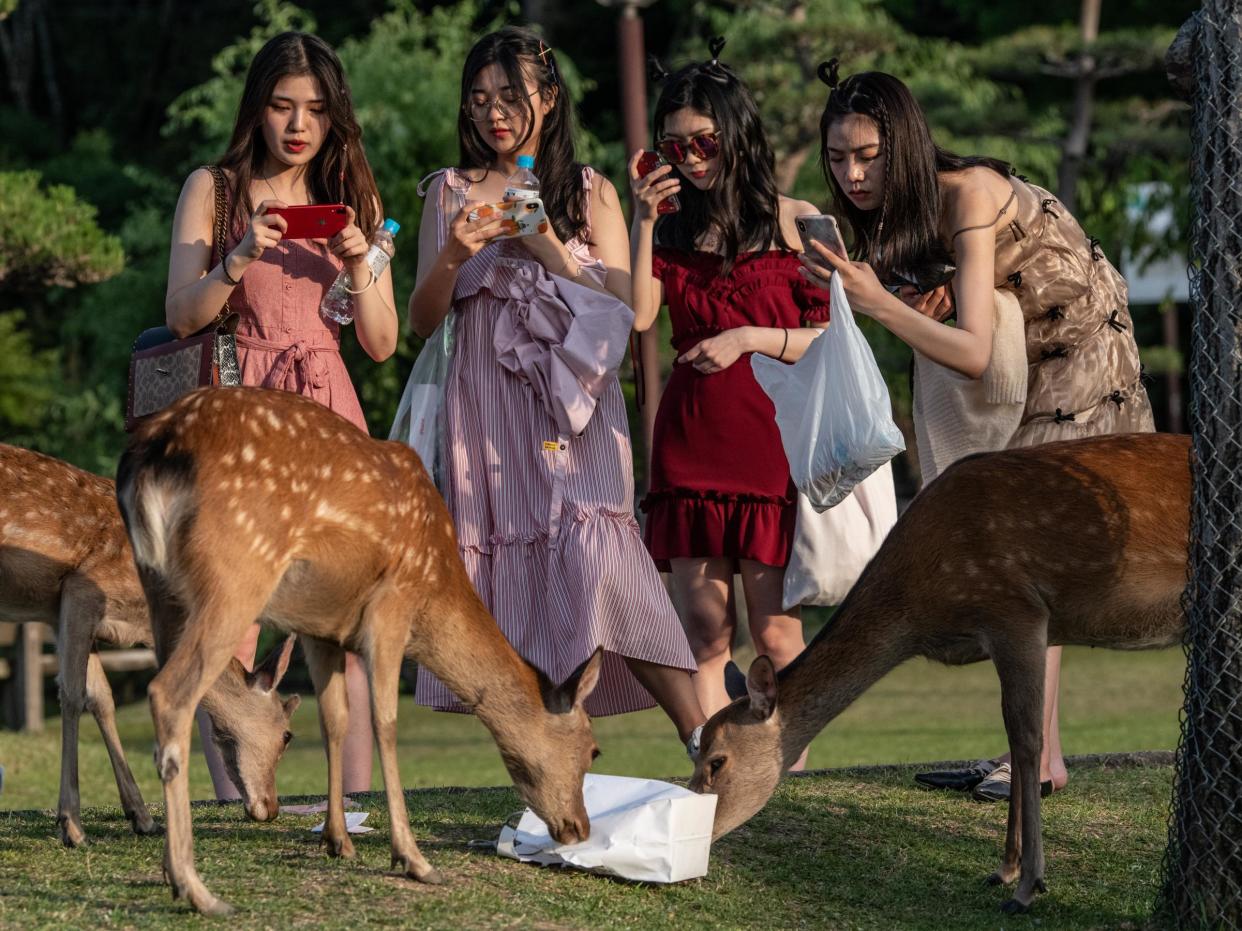Japan invents edible, deer-friendly bags to protect animals from plastic

Japan has introduced an innovative solution to protect the world-famous deer of Nara Park from plastic waste – edible bags made from rice.
The herd of about 1,200 deer is a major tourism draw to the city of Nara, near Osaka, and has been protected by law.
Tourists are allowed to feed the deer special sugar-free crackers which do not come in plastic – yet despite warnings, some visitors to the park bring other treats and end up littering the area with plastic bags, which the animals consume.
Last year, a deer was found dead in the park with 4kg of plastic waste in his stomach.
Nara resident Takashi Nakamura, who runs a paper company in the city, came up with the idea of creating bags made from rice bran that are easy for the deer to digest.
He told BBC News that, after reading about the deer dying from plastic consumption, he and two other locals worked together to invent the deer-friendly bag.
Mr Nakamura said the bags were made from recycled milk cartons and rice bran - the same ingredient that is used in the deer-friendly crackers.
Around 3,500 bags have been sold to six local companies so far, he said, including the city's tourism bureau, a local bank and a pharmacy.
And if the project is successful, it could find a wider market. Nara deer are not the only animals facing problems due to plastic waste. In 2018, vets removed around 85kg of plastic from the stomach of an abandoned bull that had been living on the streets of Pune, India.

